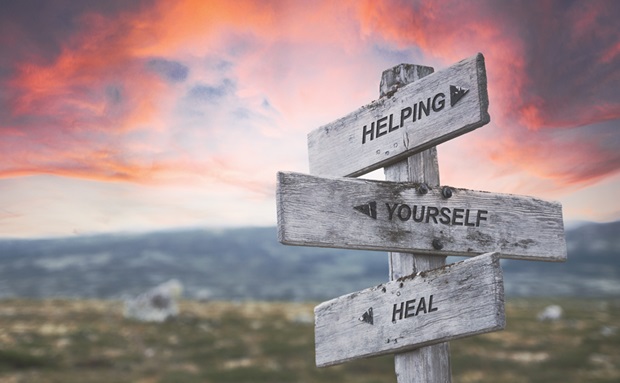
Forgiveness can feel like one of the hardest things we can do. When we’ve been wronged, hurt, or betrayed, releasing our anger, sadness, or resentment may feel like surrendering. However, holding on to negative emotions can do more harm than good. As the saying goes, “Holding onto anger is like drinking poison and expecting the other person to suffer.”
It is crucial to value the importance of forgiveness to move forward in a way that prioritizes our own peace—not for the benefit of others, but for ourselves. Forgiveness is not about condoning hurtful behavior or allowing toxic people to remain in our lives. Instead, it is about reclaiming the energy and space within our hearts and minds. As one powerful sentiment puts it, forgiveness is about not letting anyone live rent-free in your mind. By forgiving, we stop giving power to those who have hurt us and create room for our healing and growth.
Why Forgiveness Matters
At its core, forgiveness is a radical act of self-care. When we harbor resentment or anger, we carry a weight that can negatively impact every part of our lives—from our mental and emotional well-being to our physical health and relationships. Forgiveness can lower blood pressure, reduce stress, and improve heart health. When we forgive, we free ourselves from the shackles of the past, allowing us to live more fully in the present. Through forgiveness, we transform pain into wisdom and hurt into resilience.
Forgiveness is not about forgetting; it is about acknowledging the harm done, honoring our feelings, and choosing to release its grip on us. It is for you to let go, heal, and move on. This process takes time, patience, and compassion, but the benefits are worth every effort. A more mindful life requires this inner liberation—a willingness to create space for peace and let go of what weighs down the heart.
Acknowledging Your Feelings
Before moving toward forgiveness, it’s essential to acknowledge the pain you’ve experienced. Suppressing emotions can lead to more harm. Instead, allow yourself to feel angry, sad, betrayed, or hurt. Reflect on what happened and how it has impacted you. Mindfully sit with these feelings without judgment. Journaling can help process emotions in a safe space. Write down everything you’re feeling—uncensored and raw.
The Practice of Forgiveness
Once you’ve acknowledged your feelings, you can begin the journey of forgiveness. Here are several tips to help you on this path:
- Write a Letter and Burn It
One effective way to release lingering anger or resentment is by writing a letter to the person who hurt you. In this letter, express everything you feel—anger, sadness, disappointment. Pouring your emotions onto the page can be incredibly cathartic. Once done, burn it (safely) as a symbolic gesture of release. This act signifies letting go of pain and resentment, allowing yourself to move forward with a lighter heart.
- Reflect on Your Own Imperfections
Part of forgiveness is recognizing that we are all human and make mistakes. While some wrongdoings may feel unforgivable, reminding yourself of your imperfections can foster compassion. This doesn’t excuse someone’s behavior, but it can shift your perspective and soften the grip of resentment. Practicing empathy opens the door to a gentler mindset and helps you find a pathway to forgiveness.
- Visualize Letting Go
Visualization exercises can be powerful. Close your eyes and imagine the person who hurt you. Picture yourself holding the resentment in your hands. Then, visualize releasing it—watch it float away, dissolve, or transform into light. This practice can help you disconnect from lingering negative energy and find peace.
- Set Healthy Boundaries
Forgiveness does not mean giving someone unlimited access to hurt you again. Sometimes, the best thing you can do is forgive while keeping them at a distance. Establishing clear boundaries is a form of self-respect and protection. You can relinquish resentment without engaging in a harmful or toxic relationship. Mindfulness creates a safer, healthier space around you.
- Seek Support
Forgiveness can be a challenging road to walk alone. Reach out to trusted friends, family, or a therapist for support. Sharing your feelings and hearing different perspectives can be incredibly healing. Others may offer insights, advice, or a listening ear to help you process your emotions.
The Gift of Forgiveness
When we choose to forgive, we give ourselves a precious gift: freedom. We free ourselves from the chains of the past, allowing us to live with greater peace, clarity, and joy. Forgiveness doesn’t mean the pain will disappear overnight, but it sets us on a path to healing. Each step toward forgiveness creates a ripple of healing energy within ourselves and those around us.
Forgiveness is your choice, not necessarily for the person who wronged you. By forgiving, you take back control of your narrative. You are no longer defined by what happened to you but by how you move forward mindfully and courageously.
Forgiving Yourself
Forgiveness isn’t always about others. Many of us carry guilt, shame, or regret over past mistakes. Forgiving yourself is equally important. It requires self-compassion, acknowledging that you did the best you could with the knowledge and resources you had at the time. Release yourself from self-judgment and commit to learning and growing from your past actions. With each act of self-compassion, you cultivate a gentler, more mindful relationship with yourself.
Concluding Thoughts
Forgiveness is a journey, not a one-time event. There may be days when anger resurfaces, or you doubt your ability to let go. Be patient with yourself. Healing is rarely linear, but every small step toward forgiveness helps lift the weight on your heart. Remember: Forgiveness is for you to let go, heal, and move on. You can reclaim your peace, one breath at a time.
Ultimately, practicing forgiveness transforms us into women who create space for compassion, resilience, and joy—opening the door to a more mindful, present, and fulfilling life. May you find the courage to forgive and embrace your freedom.



